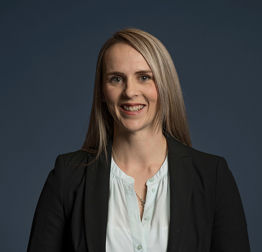New legislation is before the select committee that could significantly change the regulatory landscape for businesses involved in the medical device industry (including manufacturers, importers, exporters, distributors and logistics providers).
'Medical device' is an umbrella term used to describe products and equipment that are generally used on or in a person for a therapeutic purpose (ie generally a medical or diagnostic purpose). Medical devices range from cotton swabs, tongue depressors and sunscreen, to pacemakers and surgical robots used for keyhole surgery.
Medical devices are used throughout the New Zealand health sector but only a fraction of the total number of medical devices used here are also designed or manufactured here. Approximately 95% of medical devices used in New Zealand are imported from overseas.
There are few barriers to entry under the current regulations. The primary requirement for medical devices to be supplied in New Zealand is that they must be notified to the Web Assisted Notification of Devices (WAND) Database within specified timeframes - businesses do not need any form of regulatory approval to import, wholesale or supply medical devices, and the devices themselves do not need to meet any product specific regulatory requirements. Exporters are required to meet the requirements of the export market only. This light touch and low friction regulatory regime has been in place for over 40 years.
All of that is set to change under the Therapeutic Products Bill (the Bill).
The Bill proposes a complete overhaul of the current regulatory regime, and the introduction of greater levels of regulatory oversight of the medical devices imported into, supplied in, and exported from, New Zealand.
Background to the Bill
The Bill seeks to regulate therapeutic products, with the aim being to protect and improve the health of New Zealanders by providing for the acceptable safety, quality and performance of those products. Medical devices are one type of therapeutic product proposed to be regulated under the Bill. Under the Bill a medical device is defined as a therapeutic product that achieves, or is likely to achieve, its principal intended action by means other than pharmacological, immunological, metabolic, or genetic means (products that achieve, or are likely to achieve, their principal intended action through those means are medicines).
For general information about the Bill and the other types of therapeutic products that it proposes to regulate, please see our article here.
Key changes under the Bill
If the Bill is passed in its current form:
- Some products that are not currently regulated as medical devices, will be medical devices under the Bill (eg products that are used to disinfect medical devices)
- Generally, a market authorisation will be required for every medical device that is imported into, supplied in, or exported out of, New Zealand Market authorisations will only be granted if the new therapeutic products regulator (Regulator) is satisfied that the safety, quality and performance of the device meets specified requirements. However, there are some circumstances in which devices that do not have a market authorisation may be imported into, supplied in, or exported out of, New Zealand
- Generally, only medical devices with market authorisations will be allowed to be advertised
- Medical devices with the same responsible manufacturer and the same functionality, but different brand names, will be considered to be different products (requiring separate market authorisations)
- The person who is granted the market authorisation for a specific medical device will generally be the 'sponsor' of that device and will be required to meet a range of statutory obligations (including having a surveillance and response system). This concept of 'sponsor' is very different from the current concept under the Medicines Act, where any person who is in New Zealand and exports, imports or manufactures a medical device (or arranges for another person to do so) is considered to be the sponsor of that device
- If the sponsor is not the 'responsible manufacturer', they must have a contract with the responsible manufacturer that enables the sponsor to comply with their obligations under the Bill
- People who are not the sponsor of a medical device will only be allowed to:
- import that device with the consent of the sponsor or under a licence or permit granted by the Regulator
- wholesale that device under a licence or permit granted by the Regulator
- In addition, various 'controlled activities' set out in the Bill (such as conducting some types of clinical trials) will generally be regulated through licences and permits
- The regulator will have the power to suspend and/or cancel market authorisations, licences and permits on specified grounds
- A new range of offences (including criminal offences, strict liability offences, civil penalty contraventions and infringement offences) with significant penalties will be introduced.
What the Bill means for medical device businesses
If the Bill becomes law, medical device businesses should expect to face:
- Greater regulatory obligations
- Increased regulatory and compliance costs
- A greater level and wider scope of potential liability, and the potential for market authorisations and licences or permits to be suspended or cancelled if specified grounds exist.
As this new regime includes additional requirements, there will be increased business risk if those requirements are not met.
Transitional arrangements
A range of temporary market authorisations and transitional licences will be automatically granted under the Bill when it commences, so that businesses have time to apply for the market authorisations, and licences or permits they need and put supporting arrangements in place.
What's next for the Bill
The closing date for submissions on the Bill is 5 March 2023. If you have questions about the Bill, would like to learn more about it or would like assistance with making a submission, please contact one of the authors listed at the top of this page.




